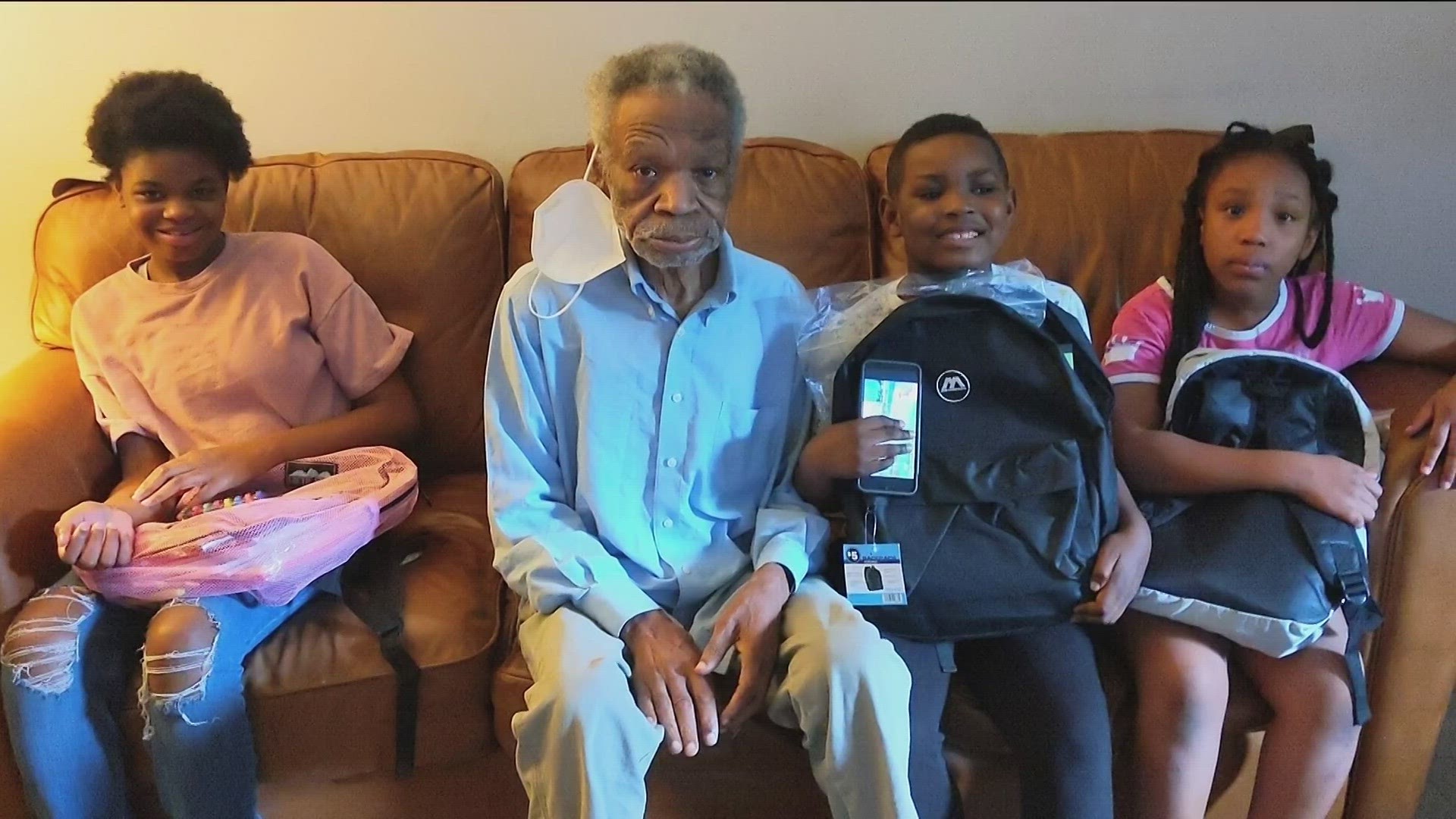DECATUR, Ga. — May marks National Foster Care Month, and in Georgia, there is an urgent need for foster families across the state.
But one group also wants to shine a light on the critical need for support for grandparents who are stepping in to raise their grandchildren and at the same time, keeping those kids out of the state system.
"I can't keep up with them," Gene Anderson,71, explained. "But l'll still take care of them and try to do what's right for them."
Anderson, a veteran, currently cares for his five grandchildren, who range in age from three to 13. He's committed, but that doesn't mean raising five children on a fixed income is not a difficult task, he shared, especially given housing costs.
"I'm 71 years old," Anderson said. "If I had one dream in life, it'd be to get a place that we can call home so that we can stop paying so much money. Because we have been moved from place to place. The rent be high that we can't afford it."
Rainie Jueschke intimately knows these families' plight. She serves as executive director of nonprofit Innovative Solutions for Disadvantage & Disability, which runs Project GRANDD (Grandparents Raising And Nurturing Dependents with Disabilities). The program focuses on providing supportive services to grandparents like Anderson, who are raising grandchildren or other relative children with special needs, free of charge.
"They're loved. They are going to be cared for," Jueschke said. "We don't want them in the foster care system. But what we do want is for grandparents to get more support because it's impossible to live on a Social Security check, but grandparents like Mr. Anderson are trying to raise children on a Social Security check."
Government support is indeed limited for grandfamilies in Georgia, though the Division of Family & Children Services (DFCS) previously acknowledged the growing numbers of grandparents caring for grandchildren in the state. Due to the need, the state established emergency help via the GRG Crisis Intervention Services Payment (CRISP), but that payment is intended to be one-time only and applied toward a sudden increase in housing or utilities or for new expenses like furniture or school supplies, rather than a family's ongoing need. Families must meet eligibility requirements under the federal TANF program, benefits which fewer than 6,000 Georgians received as of September 2022.
Meanwhile, a relative/grandparent would only qualify for foster care/kinship subsidies if a child was placed in the home by state or court order, a spokesperson for Georgia's Department of Human Services told 11Alive. While Anderson's household indeed qualifies for monthly SNAP food assistance and the kids are covered under Medicaid, there are no other government programs that provide financial assistance to informal caregivers, the spokesperson confirmed.
"I think Mr. Anderson is a great example of how broken our system is in Georgia for kinship caregivers," Jueschke said.
Project GRANDD aims to "fill the gaps for these families," Jueschke continued. "I think the most important thing we offer is emotional support, and that comes from the support groups. That comes from just the case managers working with the clients. We also provide material support like in-home tutoring. We will pay help with rent. We can help with utilities. We can help with school supplies and Christmas gifts."
The program helps around 600 adults and children each year, with dozens on the waitlist. Meanwhile, approximately 128,000 children in Georgia are cared for by their grandparents, according to the latest Kids Count report.
Anderson, meanwhile, tells everyone he knows about Project GRANDD, adding he'd "tote a sign up and down the street" to get the word out.
"Every state needs a program like Project GRANDD," he said.
Learn more about Project GRANDD here.

